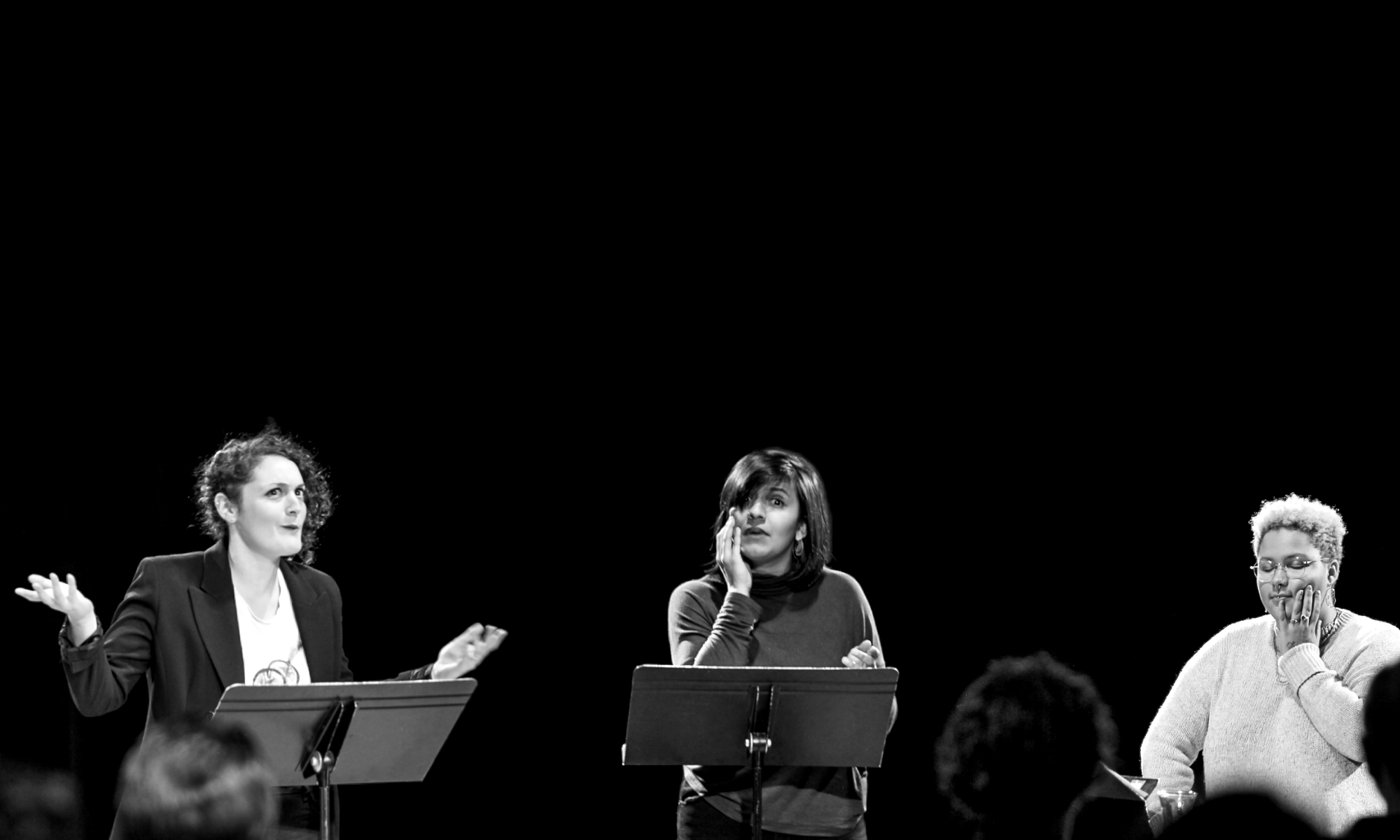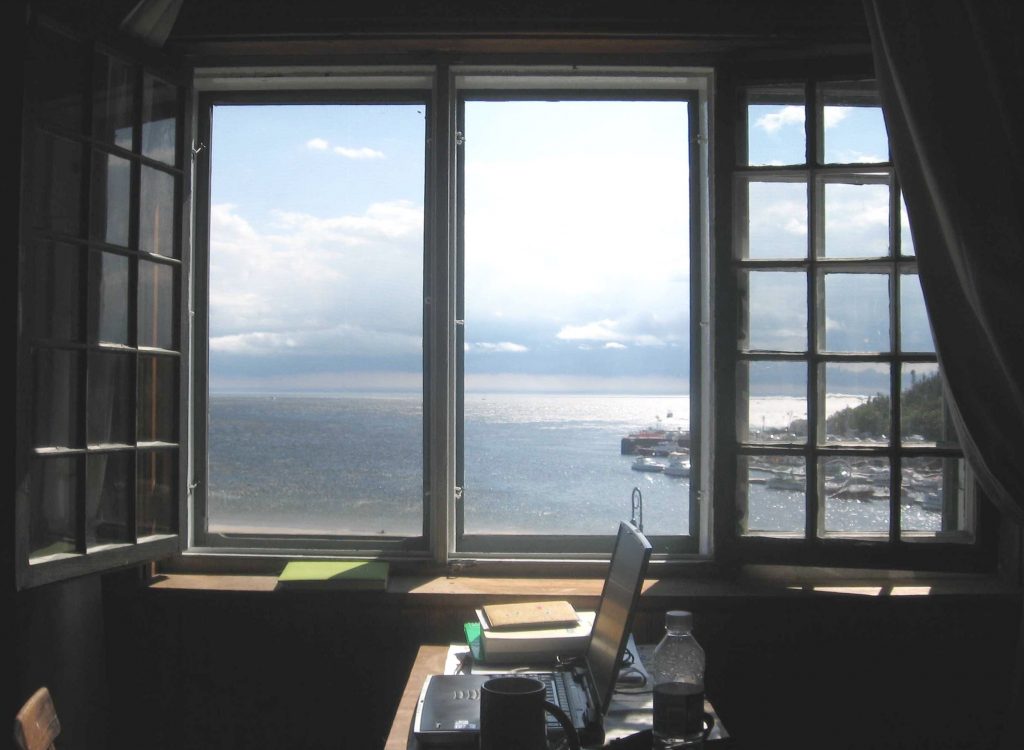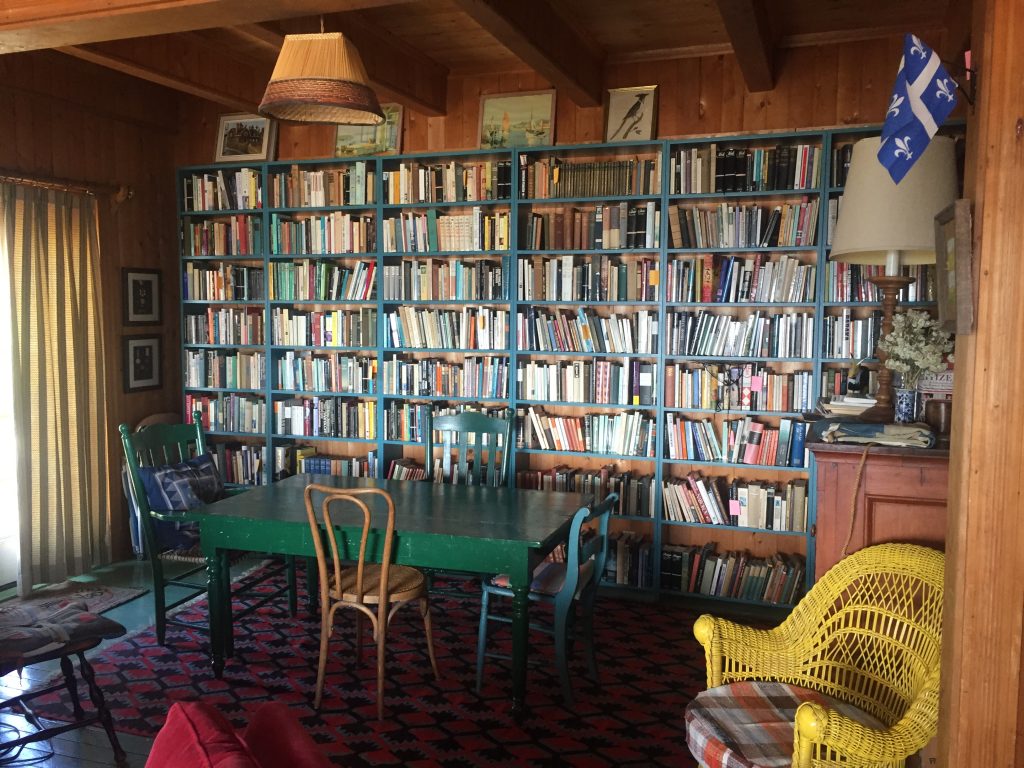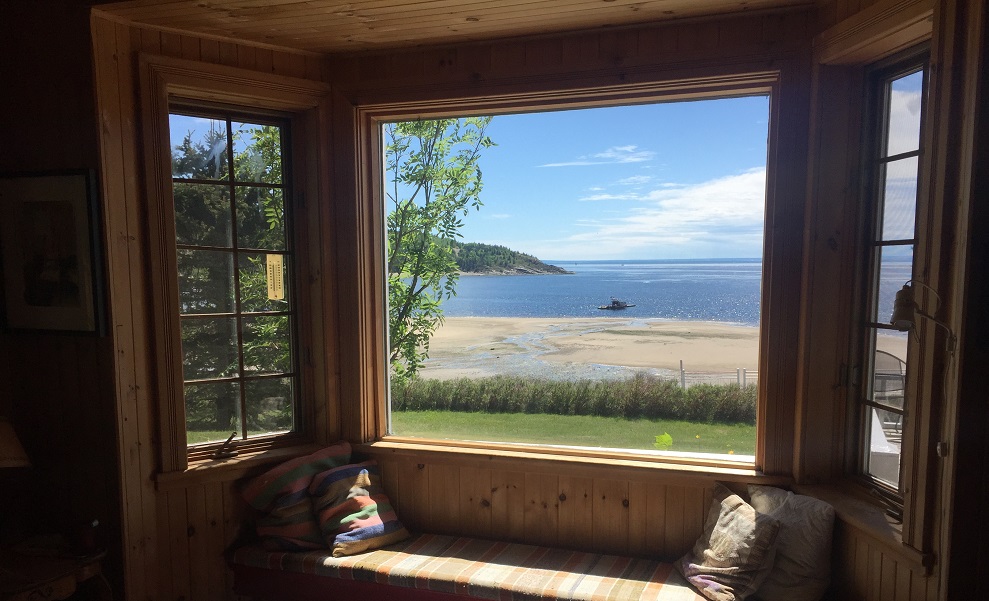La Résidence de Traduction Glassco 2020 est organisée par Playwrights’ Workshop Montréal, en partenariat avec la Fondation Cole,et le soutien des amis et de la famille de Bill Glassco.
*MISE À JOUR COVID-19 – 16 JUIN 2020*
Après quatorze ans de programmation, nous avons pris la décision difficile de suspendre la résidence pour la saison 2020.
Après une analyse approfondie de la situation à Tadoussac, au Québec et partout au Canada, nous savons que c'est la bonne voie à suivre. Nous n'avons pas été en mesure de concevoir une résidence en personne tout en respectant les consignes de santé publique pour le rassemblement sous un même toit.
Nous avons pensé qu'il était important de maintenir l'intégrité de la résidence, centrée sur le rassemblement de dramaturges et de traducteurs en un même endroit pour approfondir la pratique de la traduction sur scène. Nous sommes impatients d'accueillir à nouveau les traducteurs et créateurs au Chalet Fletcher en juin 2021.
En lieu et place de la résidence de cette année, nous commençons à planifier une rétrospective virtuelle de la Résidence de Traduction Glassco
qui accueillera les leçons apprises des anciens participants. Nous publierons plus de détails dans les prochains mois.
*MISE À JOUR COVID-19 – 26 Mars 2020*
Le niveau d'incertitude entourant le coronavirus et les restrictions de voyage nous empêchent de poursuivre le processus de sélection. Nous avons donc décidé que la mesure la plus responsable consiste à retarder la sélection jusqu'à ce que des données plus fiables soient disponibles.
Nous reviendrons fin avril avec plus de détails.
La Résidence de Traduction Glassco invite des auteurs dramatiques et des traducteurs de tout le Canada et d'ailleurs à se rendre ensemble à Tadoussac, Québec, pour travailler en profondeur leurs projets de traduction ou d’adaptation.
Les participants sélectionnés se voient ainsi offerts une occasion unique de se concentrer sur leurs projets et de partager leurs expertises dans une ambiance unique. Les traductions dans toutes langues sont les bienvenues. Au cours des quinze dernières années nous avons soutenu plus de 63 projets de traduction vers le cantonnais, le catalan, le crie, l'anglais, le français, l'innu aimun, l'italien, le portugais, l'espagnol, le tamoul, le tagolog, et l'urdu.
Cette saison, nous accueillerons la traductrice réputée Maryse Warda, qui assurera les rôles d'hôte de résidence et de conseillère dramaturgique.
Nous acceptons maintenant les projets de pièces prêtes à la traduction. Veuillez noter que nous ne finançons pas les traductions. Les pièces doivent, idéalement, avoir été produites dans leur version originale. Au moins un des éléments du projet doit être canadien. Nous encourageons grandement les artistes autochtones à soumettre leurs projets.
Pour postuler, veuillez nous faire parvenir :
- Une description du projet incluant les noms du traducteur et de l’auteur, ainsi que les attendus de la résidence pour le projet, et toutes les informations relatives à une éventuelle production;
- Biographies of both the playwright and translator;
- Un exemplaire de la pièce dans sa langue originale.
Un des critères de sélection des projets est la possibilité pour l’auteur et son traducteur de participer ensemble, en même temps, à la résidence.
Chaque participant recevra un honoraire de 750 $. De plus, tous les frais de voyage, de repas et d’hébergement sont couverts.
Submission deadline: March 2nd, 2020
Veuillez soumettre vos projets par courriel (Format PDF, 1 fichier seulement) à residency@playwrights.ca avec le sujet : Candidature à la résidence de Traduction Glassco 2020.
Pour toute question, veuillez communiquer avec Emma Tibaldo à emma@playwrights.ca.
Plus d'information sur la Résidence de Traduction Glassco ici.
Accessibilité :
La résidence a lieu dans une maison en bois rond du 18e siècle, à Tadoussac, au Québec. Un escalier de 8 marches mène à l’entrée de la maison. Les salles de bain ne sont pas accessibles aux fauteuils roulants.

La Résidence de traduction Glassco à Tadoussac est rendue possible grâce à notre partenariat avec le Programme de Conversations Interculturelles de la Fondation Cole, au dévouement de la productrice de la résidence Briony Glassco, ainsi qu'aux donations à la mémoire du grand artiste théâtral canadien Bill Glassco. Nous sommes également reconnaissants envers le Conseil des arts du Canada, le Conseil des arts et des lettres du Québec et le Conseil des arts de Montréal pour leur soutien continu.





















